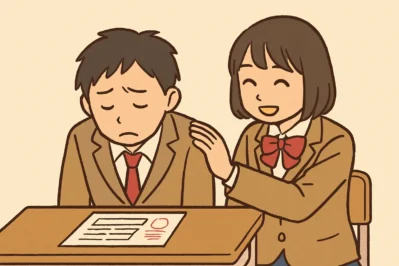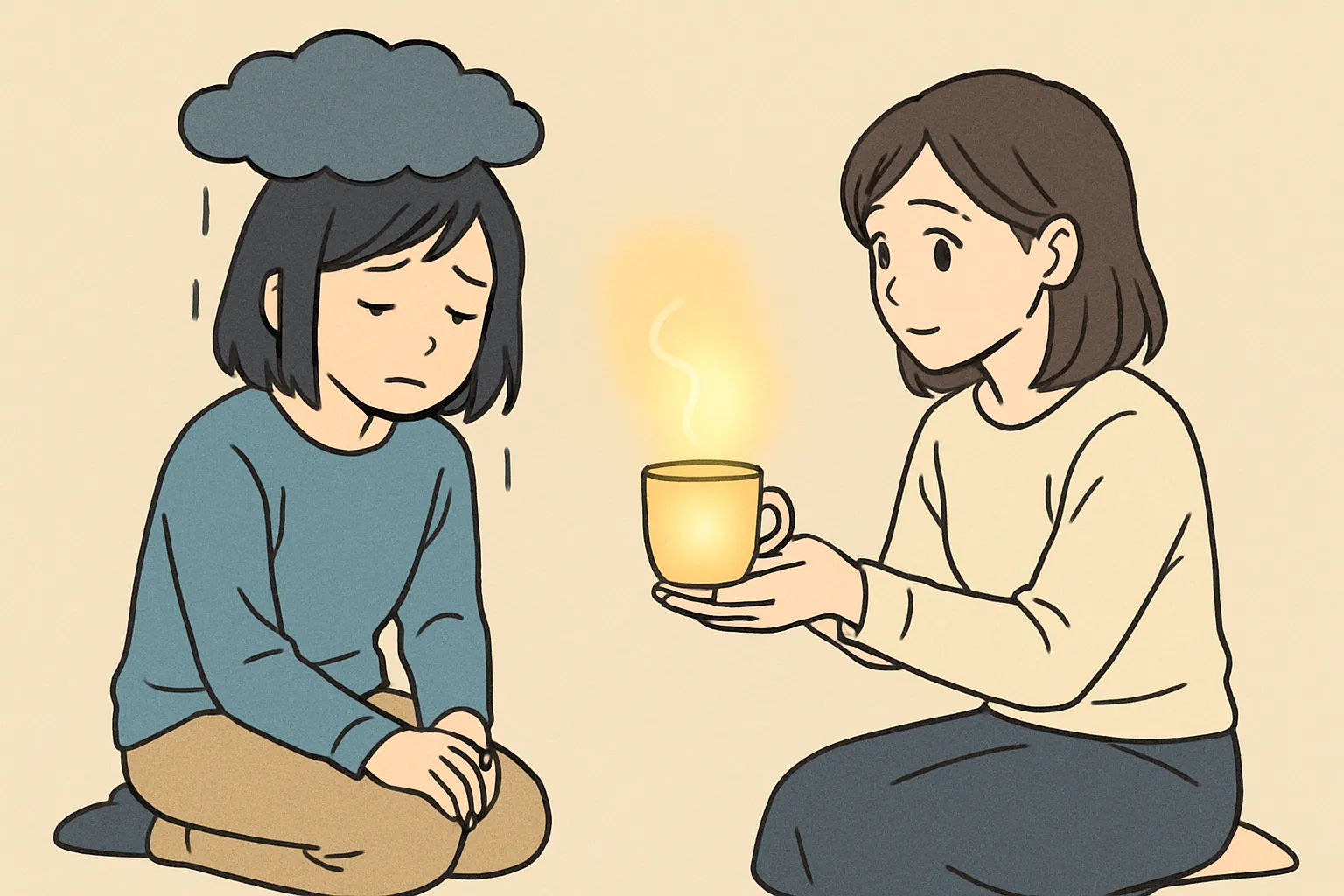Feeling Down After an Exam? Say It in Korean!
Hello! This is [Maeil Hangul], here to upgrade your Korean skills!
Have you ever felt really disappointed after getting a bad test score? It’s a universal feeling! Today, we’re going to learn some essential Korean phrases to express that you’re upset and also how to comfort a friend who is feeling down. These days in Korea, it’s the season for major university entrance exams (수능 – Suneung), so you’ll see these expressions all over social media. Learning them will help you understand what’s going on and connect with people on a deeper level. Let’s start!
Core Expressions You Need to Know
Here are three key phrases to express your feelings about a tough exam.
- 1. 속상하다 (Soksanghada)
- Pronunciation [Romanized]: Sok-sang-ha-da
- English Meaning: To be upset / To be sad (due to disappointment)
- Detailed Explanation: This is the perfect word for when you feel hurt or disappointed inside. “속 (Sok)” means “inside,” so it literally describes a feeling of inner distress. It’s less intense than “angry” and more specific than just “sad.” You can use this informal expression with friends when you didn’t get the result you wanted.
- 2. 망했다 (Manghaetta)
- Pronunciation [Romanized]: Mang-haet-da
- English Meaning: I’m screwed / I bombed it / It’s ruined
- Detailed Explanation: This is a very common and dramatic slang word! It literally means “to be ruined” or “to have failed.” It’s the perfect informal phrase to use with a close friend right after a test you know you did badly on. It’s very casual, so never use it with a teacher or in a formal setting!
- 3. 괜찮아 (Gwaenchana)
- Pronunciation [Romanized]: Gwaen-chan-a
- English Meaning: It’s okay / Don’t worry
- Detailed Explanation: This is a magical phrase for comforting someone! If your friend is upset, saying “괜찮아” is a simple but powerful way to show you care. It tells them that this one bad result isn’t the end of the world. To be a little more polite, you can add “요 (yo)” at the end: 괜찮아요 (gwaenchanayo).
Example Dialogue
Let’s see how these phrases work in a real conversation between two friends, A and B.
A: 아… 시험 결과 봤어? 나 너무 속상해.
(A: Ah… did you see the test results? I’m so upset.)
B: 왜? 잘 못 봤어?
(B: Why? You didn’t do well?)
A: 응, 완전 망했어…
(A: Yeah, I totally bombed it…)
B: 아니야, 괜찮아! 다음에 더 잘할 수 있을 거야. 힘내!
(B: No, it’s okay! You can do better next time. Cheer up!)
Culture Tip: “Bombing” an Exam, Korean Style
In Korea, where academics can be very competitive, the university entrance exam (수능 – Suneung) is a huge national event. On the day of the exam, you’ll see younger students cheering for their seniors and parents praying at temples.
Because of this high-pressure environment, the slang word 망했다 (manghaetta) has become the go-to expression for students. Right after a difficult exam, social media is flooded with students humorously or sadly declaring, “나 수능 망했어!” (“I bombed the Suneung!”). Understanding this word gives you a peek into modern Korean student culture. And knowing how to respond with a warm 괜찮아 (gwaenchana) will make you a great friend!
Let’s Review and Practice!
Great job today! We learned how to express disappointment with 속상하다 (soksanghada), dramatically declare failure with 망했다 (manghaetta), and offer comfort with 괜찮아 (gwaenchana).
Now, it’s your turn to practice!
- Fill in the blank: Your friend just told you they did poorly on their Korean quiz. You want to comfort them. What do you say?
- “걱정 마, ______!” (Don’t worry, _______!)
- Make a sentence: How would you tell your close friend, “I’m so upset because of the exam”? (Use the expression 속상하다).
Leave your answers in the comments below! Don’t be afraid to try. It’s okay to make mistakes! 힘내 (Himnae – Cheer up)






